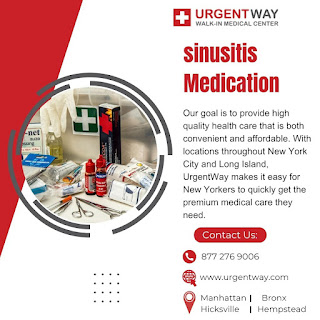How do environmental pollutants impact the success of psoriasis treatments?
How do environmental pollutants impact the success of psoriasis treatments?
Introduction:
Particulate
matter, heavy metals, volatile organic compounds (VOCs), and other dangerous
substances are examples of environmental contaminants that can aggravate
psoriasis symptoms and reduce the efficacy of therapy. For the purpose of
creating more potent management plans for psoriasis, it is vital to comprehend
the processes by which these contaminants impact the disease and how it is
treated. This article examines how environmental contaminants affect the
results of psoriasis treatments and emphasizes the importance of managing
psoriasis holistically, taking environmental exposures into account.
Knowing About
Psoriasis:
In psoriasis, an autoimmune disorder, the immune system targets healthy skin
cells by mistake, causing a high rate of skin cell turnover and the development
of plaques. These plaques can break and bleed, and they frequently itch and
hurt. The illness has been linked to depression, cardiovascular disease, and
psoriatic arthritis, among other grave medical disorders.
The goal of psoriasis treatment is to lessen inflammation and slow down the
skin's fast cellular growth. This can be accomplished by a number of therapies:
Topical treatments: These consist of retinoids, corticosteroids, and
analogs of vitamin D that are used topically.
Phototherapy: UV radiation exposure slows down the turnover of skin
cells.
Systemic treatments: Drugs administered orally or intravenously that act
on the entire body, such as biologics that target particular body sections and
methotrexate and cyclosporine.
Even with
various treatments available, many individuals do not experience full
remission, and outside variables like as environmental contaminants might
affect their symptoms.
Environmental Pollutant Types:
The following environmental contaminants may have an impact on psoriasis:
Particulate matter (PM) is the term for microscopic airborne particles that
have the ability to enter the circulation and delve deeply into the lungs.
Lead, mercury, cadmium, and arsenic are examples of heavy metals that can be
harmful to the skin and other organs.
Volatile Organic Compounds (VOCs): Substances present in paints,
cleaning products, and insecticides that readily evaporate or turn into gases.
Polycyclic Aromatic Hydrocarbons (PAHs): Substances created when coal,
oil, gas, wood, or other organic materials burn incompletely.
Ozone: An oxygen molecule that is reactive and can result in oxidative
Pollution's
Effect on the Pathogenesis of Psoriasis
There are multiple ways in which environmental contaminants can either
precipitate or worsen psoriasis.
Oxidative Stress: Reactive oxygen species (ROS) are produced by
pollutants such as PAHs and ozone, which can harm skin cells and worsen
inflammation.
Pollutant-induced immune system activation can lead to an increase in
pro-inflammatory cytokines such as TNF-alpha, IL-17, and IL-23, which have been
linked to psoriasis.
Dysfunction of the Skin Barrier: Pollutants can weaken the skin barrier,
leaving it more vulnerable to allergens and irritants, which can cause or
exacerbate flare-ups of psoriasis.
Genetic and Epigenetic Alterations: Prolonged exposure to pollutants can
result in genetic mutations or epigenetic changes that could impact skin cell
proliferation and immunological responses.
Particular
Pollutants and Their Repercussions
PM, or particulate matter
Particulate matter can enter the respiratory system and skin, causing systemic
inflammation. Of particular concern is PM2.5 (particles with a diameter of less
than 2.5 micrometers). Research has indicated a correlation between elevated
levels of PM2.5 exposure and a worsening of psoriasis. PM2.5 can exacerbate
psoriasis symptoms and perhaps decrease the effectiveness of topical therapies
by causing oxidative stress and inflammatory reactions in the skin.
Hefty metals:
Exacerbations of psoriasis have been linked to heavy metals such as arsenic and
cadmium. These metals can cause inflammation and oxidative stress, which can
compromise the integrity of the skin's barrier and encourage the rele
ase of
cytokines that are pro-inflammatory. Management of psoriasis may become much
more difficult if immune system dysregulation results from long-term exposure
to heavy metals.
Procedural
Expertise In Skin Treatment
At UrgentWay,
our healthcare providers are equipped to perform various medical examinations
and skin procedures related to skin disorders, UV damage, and aging. We offer
allergy testing, which involves pricking the skin with a small amount of an
allergen to determine if a reaction occurs. Additionally, we provide
photodynamic treatment (PDT), a type of light therapy that can be used to treat
acne and other skin disorders by eliminating germs. Our providers can also
remove skin cysts through drainage or a minimally invasive procedure.
Conclusion:
Environmental contaminants can make psoriasis worse and make it more difficult
for certain therapies to work. Patients and healthcare providers can enhance
treatment outcomes by learning how pollutants affect psoriasis and putting
policies in place to prevent exposure and buffer their effects. Psoriasis
management requires an integrated approach that takes into account both medical
therapies and environmental factors. More in-depth understanding of the
intricate relationships between environmental contaminants and psoriasis will
enable the development of more specialized and potent treatment approaches.
.png)



Comments
Post a Comment